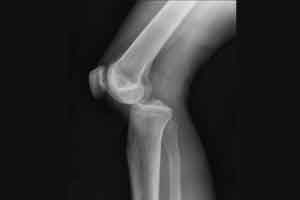- Home
- Editorial
- News
- Practice Guidelines
- Anesthesiology Guidelines
- Cancer Guidelines
- Cardiac Sciences Guidelines
- Critical Care Guidelines
- Dentistry Guidelines
- Dermatology Guidelines
- Diabetes and Endo Guidelines
- Diagnostics Guidelines
- ENT Guidelines
- Featured Practice Guidelines
- Gastroenterology Guidelines
- Geriatrics Guidelines
- Medicine Guidelines
- Nephrology Guidelines
- Neurosciences Guidelines
- Obs and Gynae Guidelines
- Ophthalmology Guidelines
- Orthopaedics Guidelines
- Paediatrics Guidelines
- Psychiatry Guidelines
- Pulmonology Guidelines
- Radiology Guidelines
- Surgery Guidelines
- Urology Guidelines
MRI inferior to arthroscopy for diagnosing chondral defects of the knee

Magnetic resonance imaging(MRI) has been found to be inferior to arthroscopy for diagnosing chondral defects of the knee in a study by researchers from the Rothman Institute, La Jolla, Calif.
Using arthroscopy to stage a lesion in the chondral area of the knee is more accurate than magnetic resonance imaging, they have found. The findings were presented at the American Orthopedic Society of Sports Medicine Annual Meeting.
Many surgeons tend to believe that Magnetic resonance imaging (MRI) is an accurate, non invasive diagnostic method, enough to lead to decisions for conservative treatment and save a patient from unnecessary arthroscopy.Chondral injuries of the knee are a common source of pain in athletes but one of the main methods of diagnosing and staging these injuries, Magnetic resonance imaging(MRI), has a specificity of 73 per cent and sensitivity of 42 per cent. Using arthroscopy to stage the degree of the injury is a more accurate way to evaluate the knee prior to surgery.
The doctors reviewed 98 patients who had autologous chondrocyte implantation, osteochondral allograft transplantation and meniscus allograft transplantation.
"Based on our review, a change in the treatment plan was made in 47 percent of cases in which staging arthroscopy was used to evaluate articular cartilage surfaces," said lead researcher Dr. Hytham S. Salem of Rothman Institute.
Arthroscopy is performed after standard sterile skin preparation and involves injecting local anesthetic subcutaneously at the portal sites and within the knee joint. It is often performed in office while patients are awake and alert.
"The results of our study indicate that staging arthroscopy is an important step in determining the most appropriate treatment plan for chondral defects prior to OCA, ACI and MAT," Salem said. "Addressing all knee's pathology can be important for the success of cartilage restoration surgery, and treatment plans may change based on the extent and location of cartilage damage."

Disclaimer: This site is primarily intended for healthcare professionals. Any content/information on this website does not replace the advice of medical and/or health professionals and should not be construed as medical/diagnostic advice/endorsement or prescription. Use of this site is subject to our terms of use, privacy policy, advertisement policy. © 2020 Minerva Medical Treatment Pvt Ltd